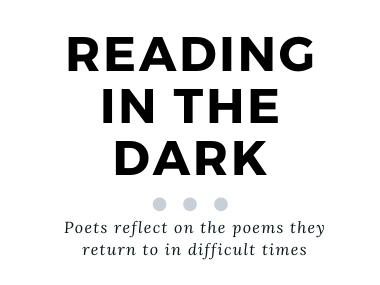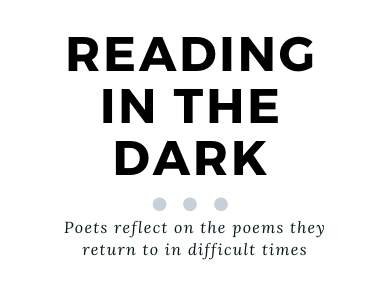Reading in the Dark
Jeffrey Yang on H.D.’s “XLIII”

XLIII
What happened yesterday? a way of living,
a way of plunging reckless through the fires,
a way of waiting, “O, they’ll soon pass over,”
a way of thinking, “where is Phoebe, do you think, Amico,
that one was nearer us or nearer her?
we might have sent her overseas—
if anything should happen—”
the doorbell or the telephone? “O, it’s you,
we were just wondering—” “it’s all right,
the all-clear’s sounded somewhere.”
From Vale Ave by H. D. (New Directions Poetry Pamphlet #7, 2013). Reprinted by permission of The Schaffner Family Foundation and New Directions Publishing.
In response to the Coronavirus pandemic, we asked poets to write about the poems they return to in difficult times—to find solace, perspective, or even a moment of delight. Subscribe to the PSA newsletter for more Reading In The Dark responses and to keep updated with the PSA.
A series of poems I’ve been re-reading lately is H.D.’s Vale Ave, a book-length work she completed toward the end of her life, while a patient in the Klinik Brunner in Küsnacht, Switzerland where she lived as cloistered as a nun, with a broken hip: “they said, ‘the bone won’t set, // you must go back to bed’”). She finished it in the spring of 1957; she died in the fall of 1961; it was first published in New Directions: An International Anthology of Poetry and Prose: 44 in 1982. Through its seventy-four verses intricately structured around the seventy-four aspects of the Kabbalistic Tree of Life, Lilith and Lucifer, nun and friar, Elizbaeth Dyer and Sir Walter Ralegh, Julia and Julius, Egyptian girl and soldier, H.D. and Hugh Dowding (Chief Air Martial; spiritualist; theosophist), part and meet in different ages and places. Farewell and hail, “the parting came / before the greeting,” those near to her—Alla, Teli, Alli, Zaka, Amico—transformed in their God-names: “VALE AVE and the thought beyond the fear, / perhaps there’ll be a miracle, after all.”
In Poem XLIII, Amico is Bryher, H.D.’s lover and partner of over forty years, whom she met on July 17, 1918, while recuperating in Cornwall from influenza, three months pregnant, at the home of her lover, the Scottish composer Cecil Gray, the father of her child Frances Perdita Aldington, Phoebe in the poem (and in H.D.’s novel Asphodel). The setting is yesterday’s London, during the Blitz, through which the poet lived. I return to these poems again and again, between stretches of time, for their alchemy of memory and the mysterious magic that draws the gaze closer to the flame, without revealing the source of the burning.
—Jeffrey Yang
Jeffrey Yang is the author of the poetry collections Hey, Marfa, Vanishing-Line, and An Aquarium (2008), winner of the PEN/Joyce Osterweil Award. He is the translator of Ahmatjan Osman’s Uyghurland, the Farthest Exile (with the author), Liu Xiaobo’s June Fourth Elegies, Su Shi’s East Slope, and Bei Dao’s autobiography City Gate, Open Up. He works as an editor at New Directions Publishing and New York Review Books.

